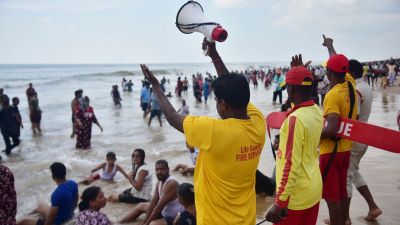Why Holland revoked citizenship of ruling party MP Hirsi Ali
When Dutch Immigration Minister Rita Verdonk announced last week that she was stripping Ayaan Hirsi Ali, an MP from her own party...

When Dutch Immigration Minister Rita Verdonk announced last week that she was stripping Ayaan Hirsi Ali, an MP from her own party, of her citizenship, it set off a controversy that has extended far beyond the usual paradigms of race and religion. It also underlines how a once-liberal society has been forced to rethink its outlook post September 11.
WHO
Hirsi (36), of Somali origin, rose to fame with her 2004 film Submission, a biting comment on violence against Muslim women in the name of Islam. Shortly afterwards her collaborator on the film, Theo van Gogh, was killed by a radical Islamist. An MP since 2003, Hirsi has spoken consistently about the dangers of radical Islam, especially in Dutch society, and has been listed by Time magazine as one the most influential thinkers of our time.
WHAT
When Hirsi applied for Dutch citizenship, in 1992, she gave a false name and age and claimed to have come directly from Somalia, escaping a forced marriage. She received citizenship in 1997 and admitted to the lies five years later, while being vetted as a parliamentary candidate. She said she had lied to protect her own identity. When she repeated the story on a TV programme last fortnight, minister Verdonk initiated action.
HOW
Verdonk, a former deputy prison warden, and Hirsi were partners in the move to crack down on radicals and illegal immigrants in Holland. While Hirsi sounded the alarm, warning the Dutch that they would have to stand up and face the problem, Verdonk cracked the whip, deporting and turning back cases she deemed unfit for citizenship. They worked like two blades of a pair of scissors; then one fell off.
WHY
There are several explanations why. One is that Verdonk was being ‘‘politically correct’’, taking action against a fierce critic of the minorities. The other view is that she was furthering her own ambitions to be prime minister and, by expelling a high-profile but illegal immigrant, acted with the far-right vote in mind. Public sympathy for Hirsi had diminished after her family disputed her claims on the forced marriage and she’d also lost a court case that forced her to change her residence. A third explanation is that Verdonk was hoist with her own petard; having come down hard on other similar cases, she could not ignore this one.
The 6th What Next
Hirsi will most likely emigrate to the US, where she’s been offered a fellowship by the American Enterprise Institute. Holland and the Dutch will be forced to look at their own attitudes and prejudices, their reputation as a free-thinking society and whether these values have any place in the world post-9/11.





- 01
- 02
- 03
- 04
- 05


























